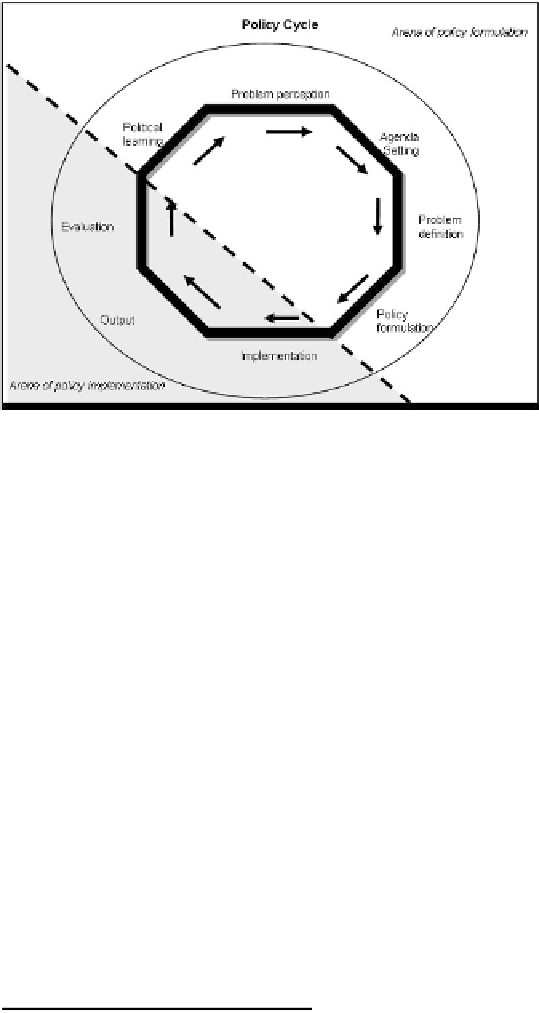Environmental Engineering Reference
In-Depth Information
Figure 4: The policy cycle
Source: adopted and slightly adapted from Faust, Lauth 2001: 305 and Jann, Wegrich 2003: 82.
The policy cycle has been criticized for representing a rationalist and technocratic view of the
policy process as 'policy making'. However, it can serve as a heuristic framework of analysis
when keeping in mind that reality is more complex (Schubert 1991). I divided the policy cycle
into the arena of policy formulation, i.e. political decision making, and the arena of policy
implementation. These two arenas overlap in practice, especially as implementation often also
involves decision making (see subsequent chapter). However, for analytical clarity it is useful to
make this distinction. Based on the critique of the technocratic, instrumentalist character and
positivist fundament of early policy analysis, approaches of post positivist policy analysis ac
knowledge the interrelation between (political) power and (scientific) knowledge and therefore
also critically reflect upon the role policy analysis itself plays in a democracy. This was con
nected with the rejection of the assumption that only one right solution (truth) suitable for
solving an identified societal problem existed and could be discovered with scientific expertise.
Rather, increasingly wicked problems with many possible or no solution to satisfy all parties
involved have to be addressed. policy analysis therefore has to include questions of power and
participation that start with definiting problems. If there is no single truth that can be discov
ered with scientific research and then disclosed to politicians, truth rather represents a consen
sus in a discourse. The task of policy analysis then is to reveal who dominates this discourse
and succeeds in getting his truth accepted (Heritier 1993a; de Leon 1993; Fischer 1993).
Traditionally, policy analysis focuses on domestic politics, while foreign policy is consi
dered to be the subject of international relations (IR). Early policy analysis tended to search for
independent variables only in the internal logic of a political system. Several IR approaches
have questioned this dichotomy for a long time.
18
In policy analysis, the impact of international
18
See e.g. Putnam 1988. This argument was also made by scholars in the field of international water relations, who
found that they could not analyze foreign water policy without linking it to domestic politics. See Kalpackian 2003,
Jägerskog 2002, Weinthal 1998.


Search WWH ::

Custom Search